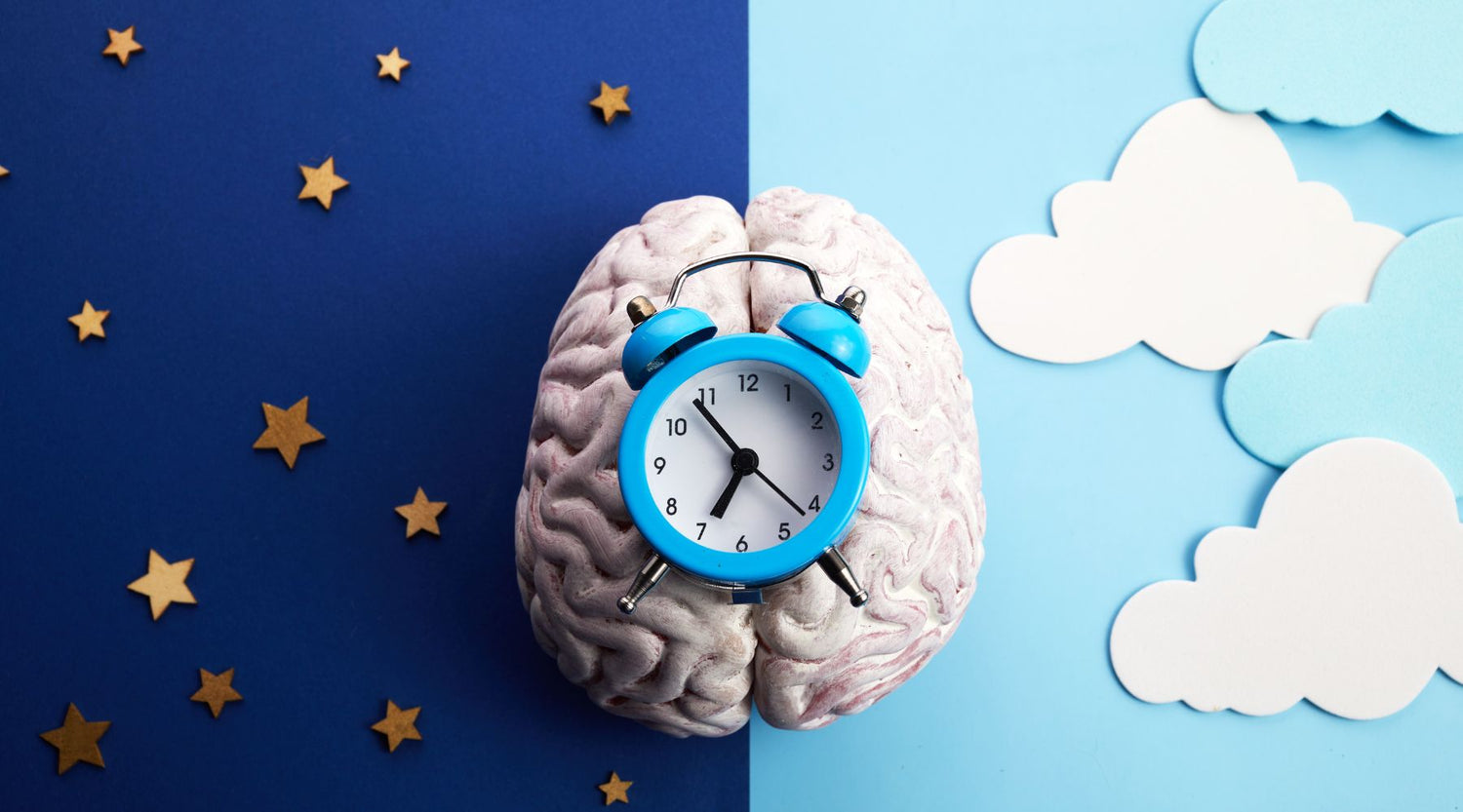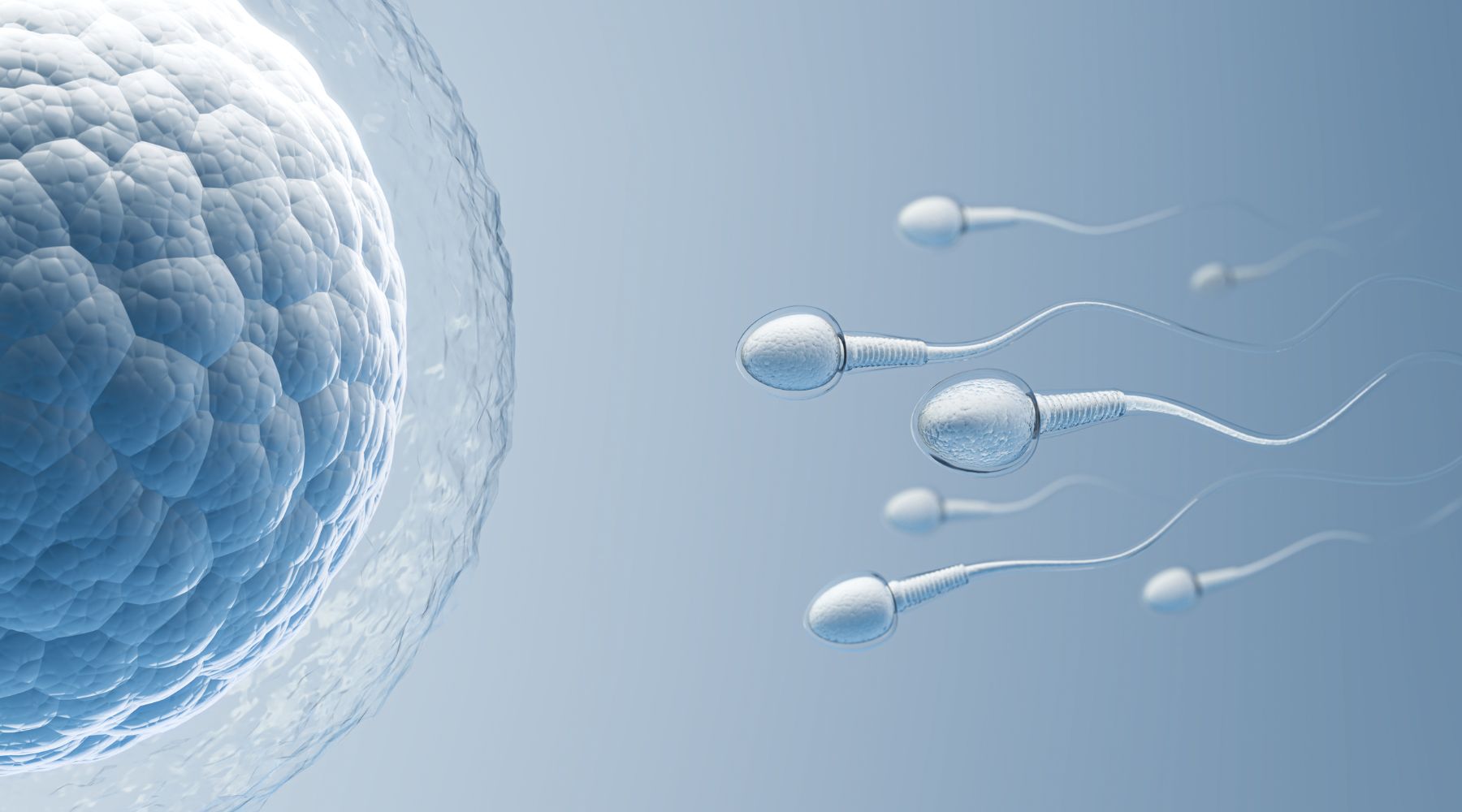In our rapidly evolving world, securing quality sleep and maintaining a balanced daily routine have become increasingly challenging yet remain essential for overall well-being. Recent scientific research has illuminated the potential of spermidine, a naturally-occurring polyamine, in promoting better sleep and regulating our internal clock. Here we present the scientific insights behind spermidine's benefits for sleep and circadian rhythm (your internal body clock) regulation, offering a comprehensive look at its mechanisms and potential applications.
Understanding Spermidine
Spermidine is a polyamine found in living things, playing crucial roles in various cellular processes including growth, proliferation, and autophagy - the body's vital cellular "clean up" and recycling process. This compound is also naturally present in foods such as wheat germ, soybeans, aged cheese, and mushrooms. As we age, our ability to produce and maintain adequate levels of spermidine diminishes, which has garnered significant attention for its potential benefits for health and longevity. Research suggests that spermidine supplementation may have a positive impact on various aspects of aging, including sleep quality and circadian rhythm.
The Critical Role of Sleep as we Age
The importance of adequate, high-quality sleep for physical and mental health, as well as overall longevity, cannot be overstated. As individuals progress through the aging process, they often experience shifts in both the quantity and quality of their sleep patterns. These changes are largely attributed to the gradual decline in the efficiency of our circadian rhythms. For many older adults, these alterations in sleep patterns can manifest in several ways, including:
- Earlier onset of fatigue and correspondingly earlier wake times
- Increased frequency of middle-of-the-night awakenings
- Reduced ability to adapt to changes in sleep routines
- Heightened feelings of fatigue during daytime hours
Research indicates that a significant proportion of the elderly population battle with persistent sleep-related issues, with around 50% of older adults struggling to fall and stay asleep, substantially impacting overall quality of life [1]. While it's natural for your sleep pattern to evolve over time, it's important to understand that feeling the need to sleep less or frequent sleep disturbances are not inevitable consequences of aging. In fact, many of these sleep-related challenges can be addressed and potentially prevented with appropriate interventions and lifestyle adjustments.
Evidence of Spermidine's Impact on Sleep
Bidirectional Relationship: Spermidine and the Circadian Rhythm
Substantial evidence suggests that spermidine plays a positive role in maintaining the circadian rhythm as we age. Research published in Cell Metabolism has revealed a bidirectional relationship between circadian clocks and polyamine biosynthesis, showing that spermidine supplementation in aged mice helped maintain a more regular circadian rhythm, similar to that of younger mice [3]. This impactful study suggests that the age-related decline in polyamine levels, including spermidine, may contribute to circadian rhythm disruptions commonly observed in older individuals. These findings not only indicate that spermidine could potentially mitigate age-related changes in sleep patterns and circadian function but also open up new possibilities for nutritional interventions to address sleep disorders.
Moreover, anecdotal evidence from individuals taking spermidine supplements, such as Primeadine, has been very encouraging. For instance, a circadian experiment conducted by gerontologist Zora Benhamou using Primeadine yielded positive results, substantiated by a number of customer testimonials commenting on improved sleep.
Pro tip: If you take Primeadine and haven't noticed an impact on your sleep yet, try taking it with your last meal of the day, or just before bedtime if you can tolerate it on an empty stomach. If you track your sleep with a wearable tracking device, you may notice taking Primeadine before bed improves your Deep Sleep and HRV scores.
As research in this field progresses, spermidine supplementation may emerge as a valuable tool in supporting healthy sleep patterns and circadian rhythms, particularly in aging populations.
Why Does Spermidine Help with Sleep?
The Role of Autophagy in Circadian Function
Autophagy, the body's cellular 'housekeeping' process, plays a crucial role in maintaining circadian rhythms and sleep-wake cycles. Research has shown that there is a bidirectional relationship between autophagy and circadian rhythms, with each process influencing the other [4,5]. Autophagy exhibits a circadian rhythm itself, peaking during the sleep phase, which suggests its importance in cellular repair and maintenance during rest. This process is therefore thought to contribute to the regulation of our molecular clock. In the cardiovascular system, for example, the temporal orchestration of circadian autophagy is critical for maintaining normal cardiac function [4]. Moreover, studies have demonstrated that disruption of autophagy can lead to negative alterations in circadian behaviours and sleep patterns [6].
Spermidine, a potent inducer of autophagy, may contribute to stable sleep cycles through this mechanism. By promoting autophagy, spermidine could potentially help maintain the optimal functioning of circadian clocks and sleep-regulating neurons (brain cells), thereby supporting more consistent and restorative sleep patterns.
Inflammation and Sleep Quality
Chronic inflammation has been identified as a significant factor in sleep disturbances, contributing to various sleep disorders and poor sleep quality [7]. Research has shown that elevated levels of pro-inflammatory cytokines can lead to fragmented sleep, low sleep quality, and alterations in sleeping patterns. Conversely, sleep deprivation itself can exacerbate inflammation, creating a vicious cycle [8]. This bidirectional relationship between inflammation and sleep disruption highlights the importance of anti-inflammatory interventions in improving sleep quality [4].
Spermidine has demonstrated significant anti-inflammatory properties. Studies have shown that spermidine effectively reduces inflammatory markers in the body. By mitigating inflammation across the body, spermidine may contribute to better sleep quality and more regular sleep patterns. While more research is needed to fully understand this as a mechanism, the anti-inflammatory effects of spermidine present a promising avenue for addressing sleep disturbances associated with inflammation. These findings suggest that incorporating spermidine into one's diet or through supplementation could potentially serve as a natural approach to improving sleep quality by modulating inflammatory processes.
How to Incorporate Spermidine into Your Routine
Incorporating spermidine into your daily routine can be achieved through dietary sources and supplements:
- Diet: Consume foods rich in spermidine, such as wheat germ, soy products, aged cheese, and mushrooms.
- Supplements: Spermidine supplements, like food derived spermidine supplement Primeadine®, offer a convenient way to ensure adequate intake, especially if dietary sources are insufficient.
- Consistency: Regular intake of spermidine is essential to experience its full benefits for sleep and circadian regulation.
Conclusion
Spermidine emerges as a potent compound in the quest for better sleep and a well-regulated circadian rhythm, particularly as we age. By promoting autophagy, reducing inflammation, and directly influencing the body's internal clock, spermidine could offer a multifaceted approach to improving sleep quality and overall health. With its scientifically backed benefits, spermidine might be the key to unlocking restful nights and a balanced daily rhythm, potentially mitigating age-related sleep issues and enhancing overall quality of life.





Leave a comment
All comments are moderated before being published.
This site is protected by hCaptcha and the hCaptcha Privacy Policy and Terms of Service apply.